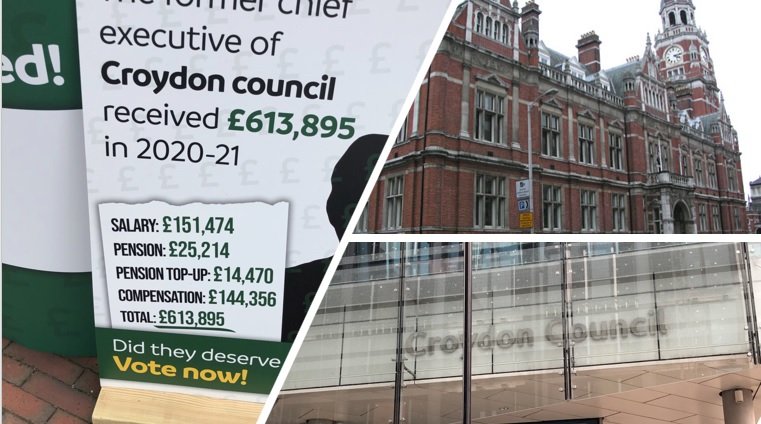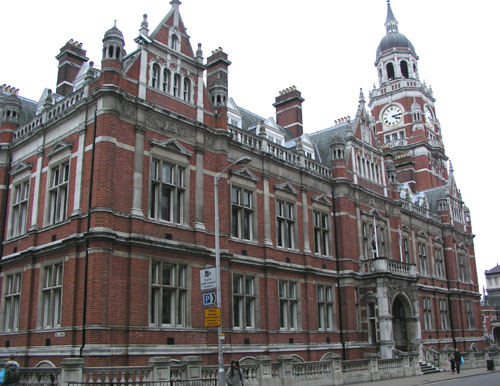Author Michael Swadling
“Croydon is the London Borough of Culture for 2023. As part of this they are committed to spending £522,500 in 2022/23, and propose another £452,500 in 2023/24”
In 1986 the TV series ‘Yes Prime Minster’ first aired the episode ‘A Real Partnership’. In it, Sir Humphrey seeks advice from his predecessor Sir Arnold on how to sneak through a Civil Service pay rise. Sir Arnold goes onto explain: ‘he should increase the London and graduate allowances since these don’t count as pay rises. Furthermore, the Outstanding Merit Awards (every civil servant gets it) should be increased and the number of civil servants decreased by creating independent trusts. This way the same pay rise will look to be only 6% a year’.
37 years later and some of the convoluted nature of this suggestion appears to have been taken on by Croydon Council. With a blaze of publicity and photo opportunities, Croydon is the 2023 London Borough of Culture.
The “London Borough of Culture award aims to shine a light on the character and diversity of London’s boroughs and bring culture to everyone”. This sounds fine but with record high taxes at national, regional, and local levels, it’s hard to see how this is necessary public spending.
In February I wrote for the TaxPayers’ Alliance “It’s also hard to see what’s fundamentally changed at the council. There’s still huge amounts of savings that could be made. Croydon is the London Borough of Culture for 2023. As part of this they are committed to spending £522,500 in 2022/23, and propose another £452,500 in 2023/24. Additionally, £1,350,000 will come from the GLA, and £1,900,000 is expected from Arts Council England and National Lottery Heritage. Spending public funds on arts that are not viable commercially or via voluntary donations as the council has been doing for years, is no less of a waste of money when it comes from someone else’s funding stream.”
“Is the new boss, same as the old boss? Well, it does appear that much like Sir Arnold’s suggestion the same old spending is being recycled under the new Borough of Culture guise”
We are now starting to see where this largess is being spent. In the period May 2022 to March 2023 (inclusive) a whopping £769,570.00 has been spent by Croydon Council under the ‘Borough of Culture’ cost centre from payments over £500. This has been spilt between just 16 organisations, many of whom regularly showed up when Croydon’s then Labour Council was spending the borough to de facto bankruptcy. Is the new boss, same as the old boss? Well, it does appear that much like Sir Arnold’s suggestion the same old spending is being recycled under the new Borough of Culture guise. Turf Projects have in the past year received £145,000.00 of Borough of Culture spending and received £78,745.38 in ‘Community Ward Budgets’ and ‘Culture Growth Fund’ between 2017 and 2021. BH Live Ltd have received £75,000.00 for the Borough of Culture and received £39,095.25 for Community Ward and Culture Growth in 2017-21. Similar breakdowns are true for Dance Umbrella, £45,000.00 and £70,269.24, and the London Mozart Players, £65,000.00 and £28,240.00.
A full breakdown of the identified Borough of Culture spending so far is below:
| Turf Projects_ | £145,000.00 |
| Stanley Arts | £127,000.00 |
| BH Live Ltd | £75,000.00 |
| London Mozart Players | £65,000.00 |
| Fashion Meets Music Collective C.I.C. | £50,000.00 |
| Dance Umbrella | £45,000.00 |
| The Brit School | £45,000.00 |
| Savvy Theatre | £43,000.00 |
| Redacted | £36,500.00 |
| Apsara Arts | £32,475.00 |
| Croydon Town Centre Bid | £30,000.00 |
| Boundless Theatre | £30,000.00 |
| CR34 t/a Mr Fox | £28,000.00 |
| Designblock Studio Ltd | £9,895.00 |
| London Road Business Ltd | £5,000.00 |
| E-People.Com Ltd | £2,700.00 |
“We understand given past financial mismanagement why the council felt the need to increase Council Tax by 15% this year, but how can this be justified when another £975,000 of unnecessary spending is being recycled, much of it to the same old organisations”
These organisations no doubt provide the services requested from them and in doing so exhibit good value for money. The question is ‘do we really need them?’ We understand given past financial mismanagement why the council felt the need to increase Council Tax by 15% this year, but how can this be justified when another £975,000 of unnecessary spending is being recycled, much of it to the same old organisations.
Spending £1,350,000 of GLA money, and £1,900,000 from Arts Council England and National Lottery Heritage, isn’t any better. These are funded by the same tax increases we all have to pay, and in the case of the GLA will likely soon be just another justification for the funds ULEZ expansion will raise.
Becoming the London Borough of Culture was signed up for by the last Labour administration, but surely the Section 114 notices and de facto bankruptcy was a great opportunity to ditch this luxury. Croydon Council has reduced spending greatly to stabilise the boroughs finances. Yet can we say things have really changed, when taxes are up 15%, we have front line service cuts, but are still spending a million pounds on fashionable arts.

















